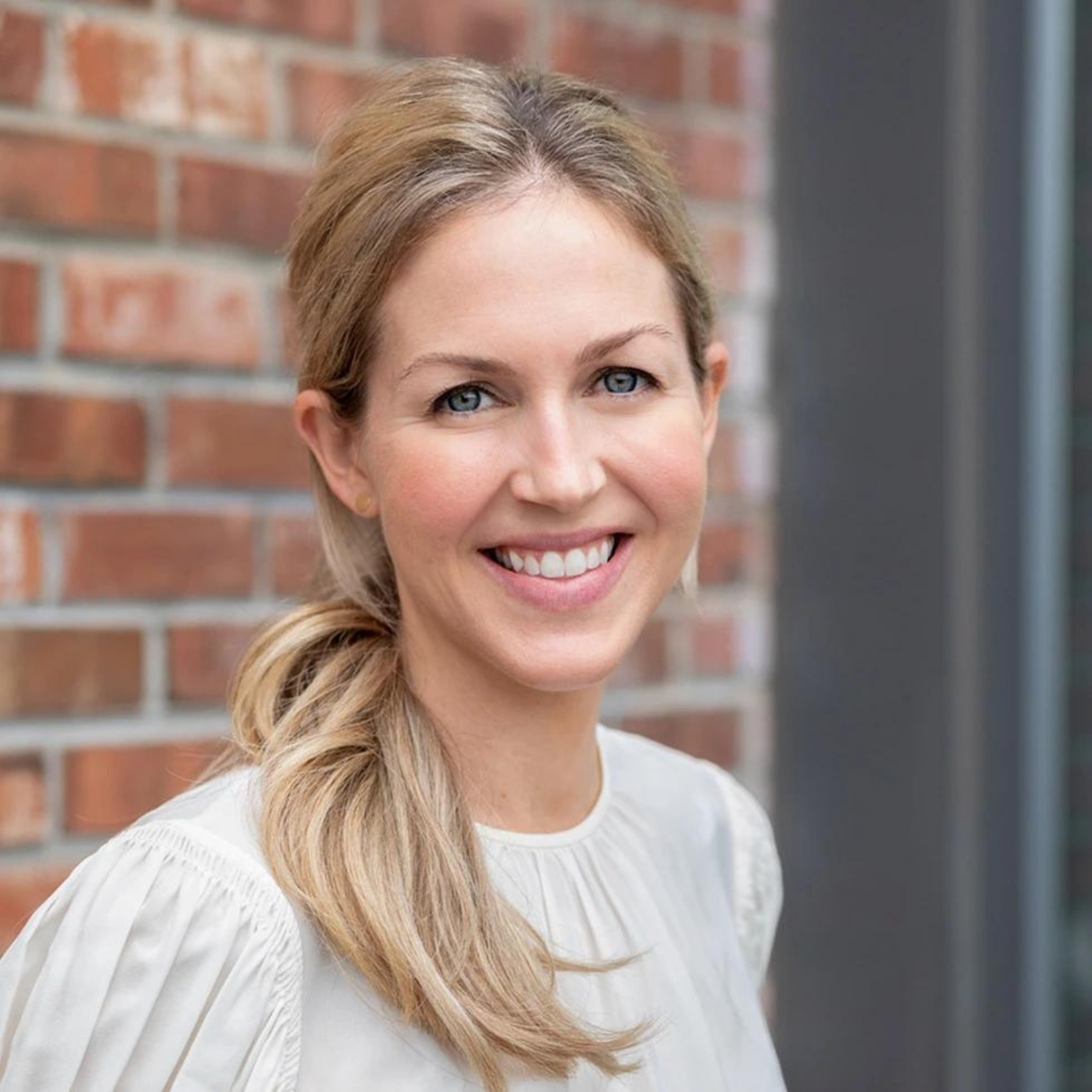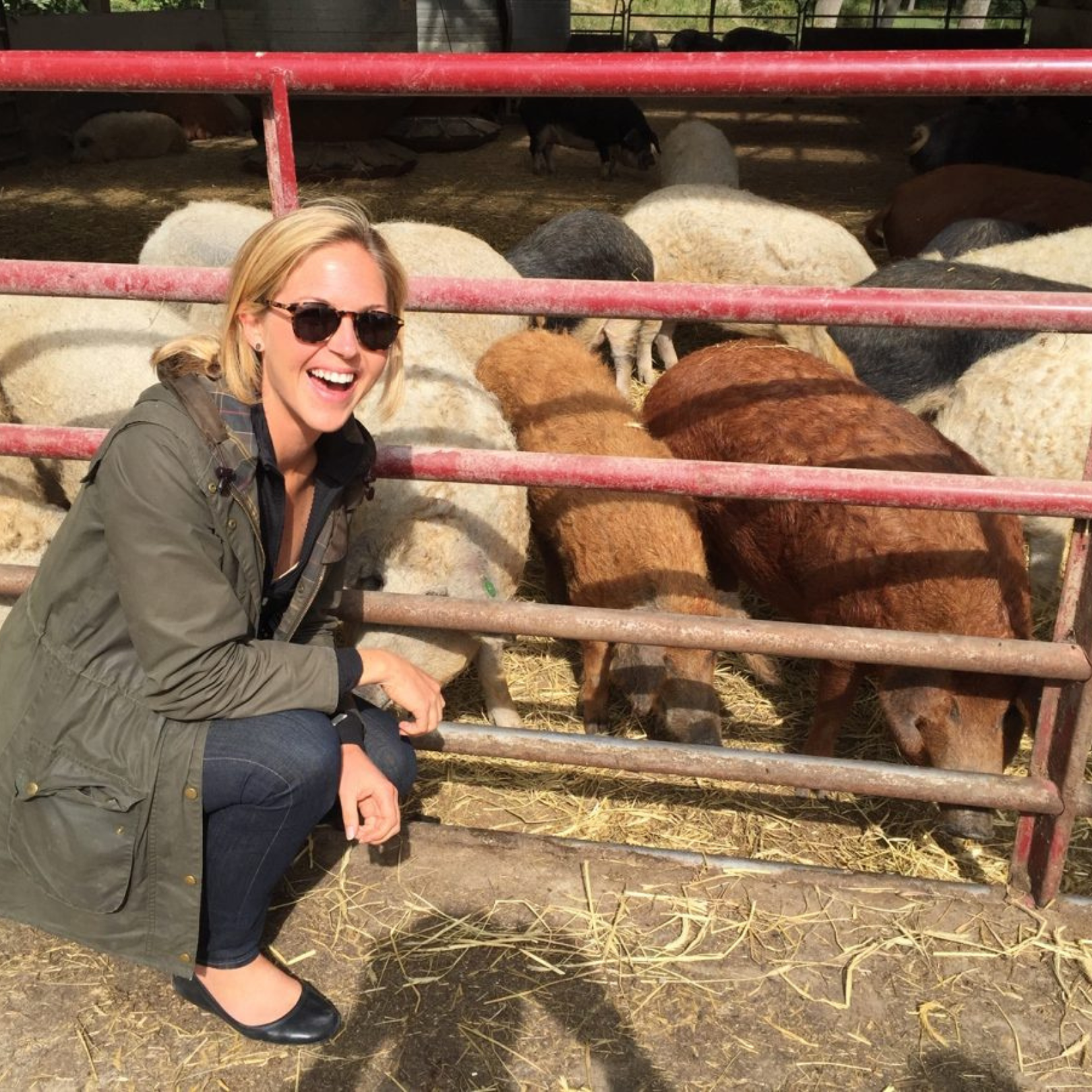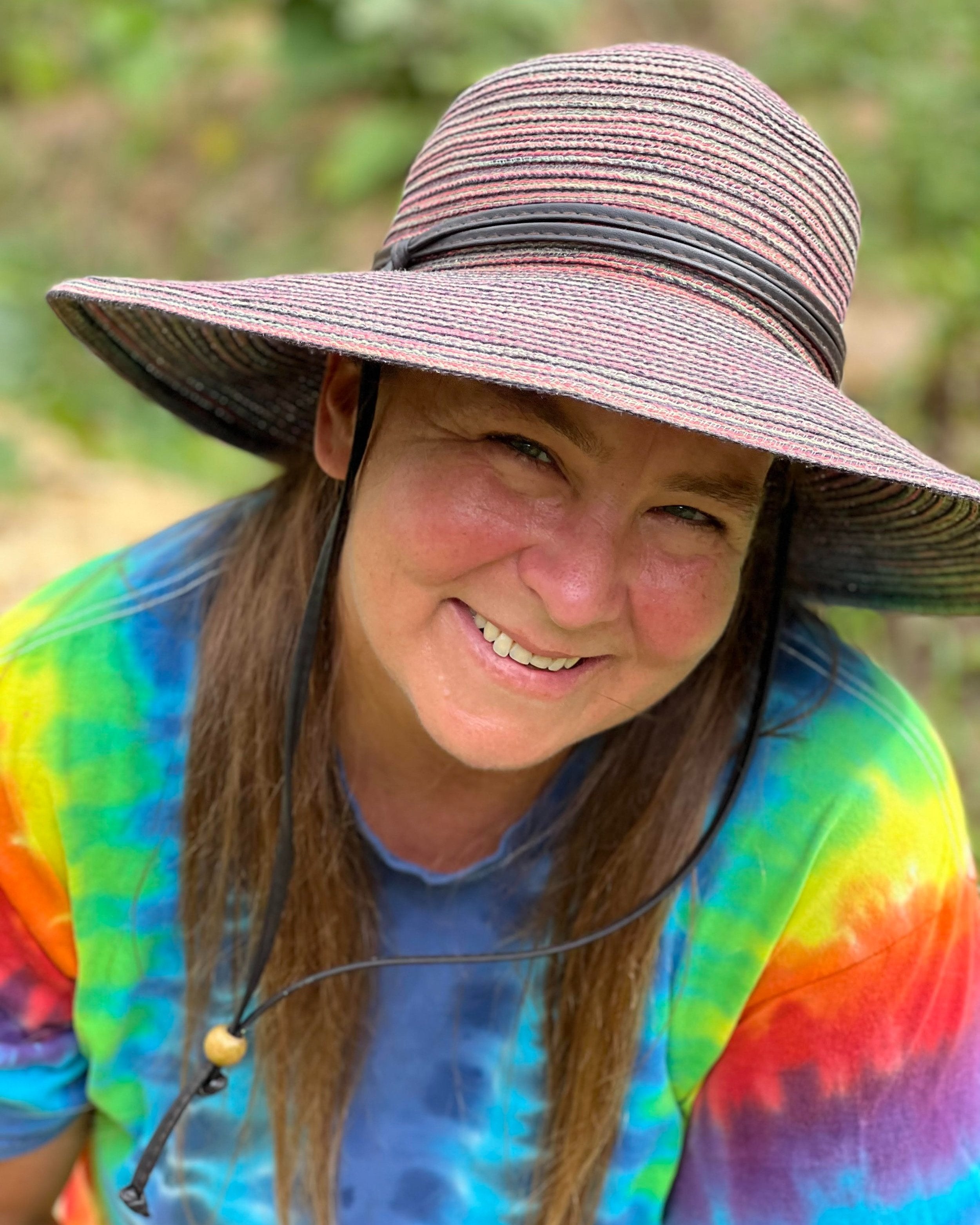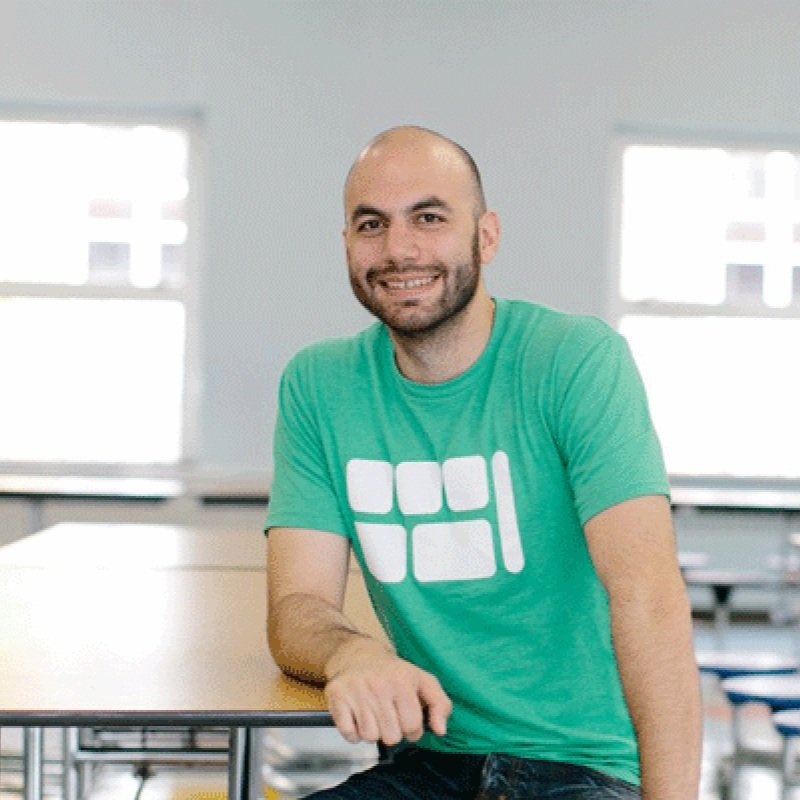Funding the Future of Food
In conversation with Elly Truesdell, co-founder and managing partner of New Fare Partners.
Most venture capital fund managers have backgrounds in finance that guide them to successful investments. For Elly Truesdell, the founder and managing partner of early stage venture fund New Fare Partners, it's a 15-year career in the natural food space that allows her to pick winners. She spent a decade working at Whole Foods Market, launching hundreds of consumer brands in grocery stores and building an expansive network of food industry titans—so she has access to deals that a MBA graduate wouldn’t dream of.
Elly first realized her expertise would translate to the finance world when she was recruited to work at a venture fund called Almanac. Once she saw the special value in her experience, she and her co-founder Hallie Bonnar established New Fare Partners with the goal of investing exclusively in food and beverage companies. “Hallie and I built what we thought was a pretty unique thesis around the future of food and what we think the modern eater demands from brands,” she says. “We're an investment vehicle, but we live and breathe food.”
Here, Elly explains how New Fare Partners is different from other venture funds, how her decade at Whole Foods prepared her for this role, and how she got into the food industry in the first place.

Mast Journal: How exactly does a venture fund like New Fare Partners work?
Elly Truesdell: It's always great when you have the chance to distill this down because I shouldn't ever take for granted that people know how these things work. With a venture fund, my job and objective is to first raise money from a variety of limited partners or investors. Limited partners, which we call LPs, invest in New Fare with an understanding of the strategy of what we expect to deploy at what stage. For us, it's early stage. And if you decide to invest with us, then you're accepting that we, New Fare, and me, as general partner, will take that money and invest it on your behalf across a variety of businesses.
In a lot of early stage venture funds, that often means investing in 40 companies. We are more specialized and what we call a higher conviction venture fund, in that we invest in fewer businesses and that we expect to see a return and we follow on in the businesses that are doing especially well. So we've made nine investments to date. We typically invest between $500,000 to a million, sometimes 1.5 million, into these companies with our first investment.
The reason that LPs or investors are interested in coming in is they believe in our expertise, our specialty, and our ability to see deal flow, and also the variety and quantity of investment deals. Based on my time at Whole Foods, my whole life is just seeing young companies and their pitch decks. So we see hundreds, thousands of deals a year, and that's something that LPs find attractive, having such a close connection to the entrepreneur founder orbit.
They also believe that we're going to pick winners and make good bets, but they are diversifying their risk. We expect to invest in between 16 and 20 companies in the life of this fund, which is a $20 million fund. And there's always an expectation that not all of those companies are going to see a return or see some major outcome, but rather you're spreading your money around and hopefully taking risks where you should and balancing the portfolio to get there. That's really why a person would invest with us because of our expertise and specialty, our access to deals, and our diversity and variety of investments.
MJ: Oh, that was a perfect explanation. That actually does make a lot of sense. Thank you. And are you able to share what companies that you've invested in?
ET: We totally can share. There are certainly investment funds that keep that a little bit more private, but once we've closed our deal, we're very public in who we've invested in. We've invested in seven consumer-facing brands, one of which is also a four-wall concept called Tacombi. They are four-wall Mexican taquerias, which are in New York, Miami, D.C., and as of last week, Chicago, which is awesome. They also have a consumer-facing brand called Vista Hermosa. We call that an omnichannel four-wall business that we're invested in.
We're invested in Foxtrot, which is another four-wall business. And when I say that, it just means a brick-and-mortar, full-service restaurant or store concept. And Foxtrot is reinventing the corner store and has a really amazing offering. In the morning, you can have amazing coffee or a smoothie and at night, you can have a glass of wine and some charcuterie. And you can pick up some of your market goods along the way. We’re also invested in Omsom, which is founded by two amazing young Vietnamese sisters who are recapturing Asian flavors through their brand, and Mid-Day Squares, which is by three founders from Toronto who have an incredible refrigerated chocolate-meets-functional bar in the form of a square.
We do consider pet food as under that food umbrella, just based on experience in supply chains, so we're invested in Made by Nacho, which is a brand I co-founded in the pet space. I am the co-founder with Bobby Flay, the chef, and his cat Nacho Flay, who is very much our inspiration and we sort of joke is our co-CEO. And that's been a fun one as an investor and a founder. The other outlier that's fun and really unique is an investment we've made in a company called Zitti, which is a restaurant tech, or SaaS business, that's focused exclusively on independent restaurants. It’s restaurants with sub-20 units that are really in peril right now with costs and labor and all of the challenges of running a small restaurant. What we've found is that so many of those restaurants are really antiquated in how they're ordering and purchasing. They're just not seeing the efficiencies that they could. And so this company is addressing that problem and built a software that is mainly geared at price optimization.
MJ: All of those companies sound really cool! And how did you first get into the food industry?
ET: I've been a food person my whole life. I always really loved food growing up, ate everything in sight, and was interested in cooking. I watched a lot of the Food Network in my high school and college years, so it’s been really fun working so closely with Bobby Flay and other chefs that I very much idolized. But I had a little bit more of a passive interest in food when I was leaving college. I had been a media studies major, so I was anticipating wanting to do editorial work or television production around food.
I went to the University of Virginia and when I finished, I had no job prospects. So I moved home to Connecticut and I ended up working at Sandy’s Summer Stand, which I absolutely loved, selling fruit and vegetables next to a fish market. It really solidified my want to be in food, but also to be a little bit closer to agriculture and supply chain and sourcing. I spent about a year doing jobs like that, working in a specialty produce store and working on a farm. Then I landed what became a 10-year, career-building job at Whole Foods Market, and I had a really interesting and amazing role there. First, my title was local forager and then eventually, moving my way up over several years, I became the global director of local brands and product innovation.
MJ: Amazing. What did your job at Whole Foods entail?
ET: I was essentially overseeing the local purchasing program nationally for Whole Foods. And that meant I was responsible for finding up-and-coming brands that had a ton of promise and were filling categories that needed filling. It meant working with farms and fisheries and livestock producers who were offering something that we needed or had some differentiating aspect, which was so fun. It meant every Friday I was either on an oyster boat or in a chocolate facility or visiting bees at an apiary.
It was during the heyday of consumer food. This is when I got to know the Mast Brothers really well, and when I got to meet just hundreds of entrepreneurs who were really passionate about whatever particular food category they were going after. I learned so much because each one of those entrepreneurs or founders was such an expert in their own craft. And so I had the chance to become a light expert across different parts of the grocery store and build a real acumen for what could work in a big way in consumer food.
Throughout those 10 years, I also worked with a ton of chefs. This was 2008 to 2017, so it was a time when a lot of chefs were recognizing their credibility, their influence, and wanting to build consumer-facing brands. It was the early days of chefs deciding to go out a little bit more commercially. I was lucky to have the chance to help the Momofuku team launch their sauces, I helped the Blue Hill team launch their vegetable-based yogurts, and I worked with Roberta's Pizza to launch their frozen pizza line.

MJ: How did you come to launch a pet food company with Bobby Flay?
ET: I built a name for myself in a variety of ways across food. People just knew who I was. It was sort of like, if you're looking to launch a product at Whole Foods, you need to talk to Elly. So a lot of chefs learned who I was. I actually met Bobby Flay randomly in one of his restaurants, which is no longer, called Gato, about five and a half years ago. It was right after I had left Whole Foods and I just introduced myself. I knew his agent and a bunch of people who know him. He just said, If I ever have an idea, you're going to be my first phone call.
Only a few months later, he did call with an idea around his cat Nacho. Bobby has been a lifelong cat lover. He grew up as an only child with cats, and so has always been obsessed with them. He jokes that they were his siblings growing up, and as an adult has had a couple of cats, but the one who grew some fame is Nacho. Nacho Flay has almost 250,000 followers on Instagram. He’s this beautiful orange Maine Coon cat who Bobby's had for seven or eight years now.
Bobby realized that he has been feeding people for 30 years of his career. All he does, day in and day out, is bring people food, whether through TV or cookbooks or demos. He's instructing people how to eat, but he realized he hadn't ever paid as close attention to what his cats should be eating, and he felt like he should be doing more for his cats. A lot of big pet food companies were pitching him on endorsement and licensing deals because Nacho had built such a following. So he came to me with these two things: I've got serious interest in Nacho because he's got a real following and a fan base clearly who are our cat lovers and cat owners across media channels. And I, a devoted cat dad, don't really know what to feed my cats or know which brand to trust. And I think there's a lot of room for improvement.
If you're not a cat owner, you might not know that cats are really finicky or notoriously hard to satisfy when it comes to switching their food or giving them new food. And that's why so many cat owners end up feeding their cats some of the legacy conventional brands, which are pretty terrible for them. They’re the equivalent of junk food for cats because they’re got a ton of palatants, a ton of things in the food that make them continue to eat them. So what we thought was, Who better than Bobby Flay, one of the most famous chefs in America, to use his culinary tricks and to really think about flavor and palatability to get cats excited about food that was actually really good for them?
MJ: What a smart idea!
ET: The brand name is Made by Nacho. We started working on this about five years ago and we launched in market a little over two years ago, so it's been a long, long road, but a really fun one. We’re omnichannel. We launched direct-to-consumer first, but very soon after, with all PetSmart stores nationally. I am Bobby’s co-founder and helped build the infrastructure of the business and the brand, helped build the team, and have been responsible for raising money through each round. But we were always going to hire a CEO with pet industry experience because that's not my background.
We have an incredible team at the helm now, who is really starting to build the brand in a big way. We just did our first national TV commercial, which has been really fun to see. It's been just such a wild ride and also a really helpful experience on the New Fare front, in terms of investing, because being so close to and building a business from scratch, I have such empathy for founders and for entrepreneurs of the roller coaster that it is. You have such highs and such lows as you build an early stage business like this and things can go so wrong. And so I think that's been a huge factor in the success of New Fare, in terms of how much value we can add.
MJ: Totally! You understand both sides of the experience.
ET: Yeah, absolutely.
MJ: And how did you learn to run a venture fund? Did you have to do any special training to enter the finance world?
ET: That’s a very valid question. I think a lot of people would need to. When I was leaving Whole Foods at the end of 2017, I had a ton of venture capital and private equity funds recruiting me just because of the relationships I built along the way and people saw a value that I'd created, that I didn't even realize I had created, over that decade of working with founders. I decided that I wanted to take an advisory role with a fund, which is how I landed at Almanac as an advisor. But what I learned is that the value that I had created was I have a really good sense of people.
I'm able to now influence people quickly to hopefully make big differences in their business, which really helps and has gotten me farther along in terms of investing than the path that someone else would need to take. Over the years, I gained major access to a ton of deal flow and access to deals that were much more competitive and harder for general investors to get into, which is huge. And the reputation that Halle and I have created for ourselves, over five years of working together, has really afforded us access to investments that other people don't have, as well. We are focused exclusively and solely on food, where I have a real expertise.
That being said, what I absolutely do not have, personally, is financial modeling expertise and the ability to do the deep financial analysis that you need done when reviewing an investment. I was able to skip over that experience. For many people, it absolutely makes sense to go get your MBA or to spend those grunt years in investment banking. I went a very different route and have a lot of different value that I can bring to the fund, as well as access to capital in raising from LPs. That allows me to build a team around me that has a much more traditional finance background that we absolutely need, which is a complement to what I bring to the fund, which is more qualitative, but arguably harder to achieve.
MJ: Got it! As long as you have a smart team, you’re set.
ET: One of my favorite things is building teams. We are very lucky to hear from a lot of amazing, brilliant minds who are post MBA or who have been at banks and are really looking to join a fund that has a focus on either consumer food or impact or sustainability and are excited by New Fare. And so we're so thrilled because I hire people that are way smarter and more tenured on that side, but I think they love what they get to learn from us and our backgrounds.
MJ: What do you love most about your job?
ET: We have the chance to invest in people's companies at a time when other people aren't willing to or when it feels really risky. But we have the chance to show our confidence and hopefully help them along the way. A huge part of New Fare's approach is that we are operators. We have been in this industry for a long time, so we hope to be as hands-on as the founder team wants us to be, to help them avoid the pitfalls of any early stage business and to help them grow. We want to help hire and recruit and strategize anything that comes up. And so that's what I love about the work is we are not at all a passive check. We're very hands-on with our businesses. We're really close with our founders and the teams that we've invested in, and we try to help them in any number of ways, which is the only way that I'd want to be an investor. That's the value that we bring. It's not just money.
More from The Journal

Digging In with Allison Turcan
In conversation with the tireless local food advocate and farmer, Allison Turcan. She shares the story behind her creation of D.I.G. Farm and the Westchester Local Food Project.
Read more
In conversation with Chef Dan Giusti, founder of Brigaid. The former head chef of Noma shares his impressive career path and how he is rethinking institutional food service.
Read more